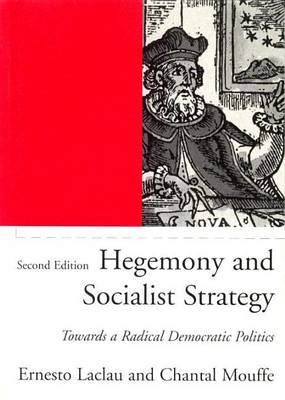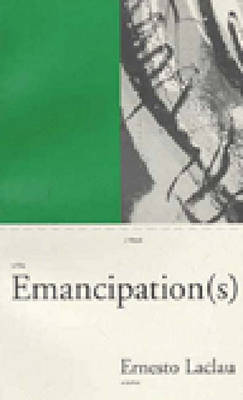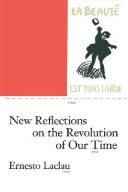Phronesis S.
3 total works
This key text of the new 'post-Marxism' criticizes the persistent essentialism of the Marxist tradition from Plekhanov via Lenin and Gramsci to Althusser, and proposes a radical renovation of theory and practice.
In Emancipation(s), Ernesto Laclau addresses a central question: how have the changes of the last decade, together with the transformation in contemporary thought, altered the classical notion of "emancipation" as formulated since the Enlightenment? Our visions of the future and our expectations of emancipation, have been deeply affected by the changes of recent history: the end of the Cold War, the explosion of new ethnic and national identities, the social fragmentation under late capitalism, and the collapse of universal certainties in philosophy and social and historical thought. Laclau here begins to explore precisely how our visions of emancipation have been recast under these new conditions. Laclau examines the internal contradictions of the notion of "emancipation" as it emerged from the mainstream of modernity, as well as the relation between universalism and particularism which is inherent in it. He explores the making of political identities and the status of central notions in political theory such as "representation" and "power," focusing particularly on the work of Derrida and Rorty.
Emancipation(s) is a significant contribution to the reshaping of radical political thought.
Emancipation(s) is a significant contribution to the reshaping of radical political thought.
"New Reflections on the Revolution of Our Time" continues the innovative exploration of major issues concerning democracy and socialism which was staked out in "Hegemony and Socialist Strategy." Examining the meanings of social struggle in the context of late capitalism, Laclau situates the re-making of political identities within a framework of democratic revolution. The critical method is one which describes major structural changes in the contemporary world-system at the same time as it theorizes a coherent and radical interpretative form. This marriage of politics and theory allows the book to embrace topics ranging from the relationship between Marxism and psychoanalysis to the historical significance of May 1968 and forms of political struggle in the third world. In a final section of illuminating interviews the author expounds his most recent thought on politics and philosophy.


